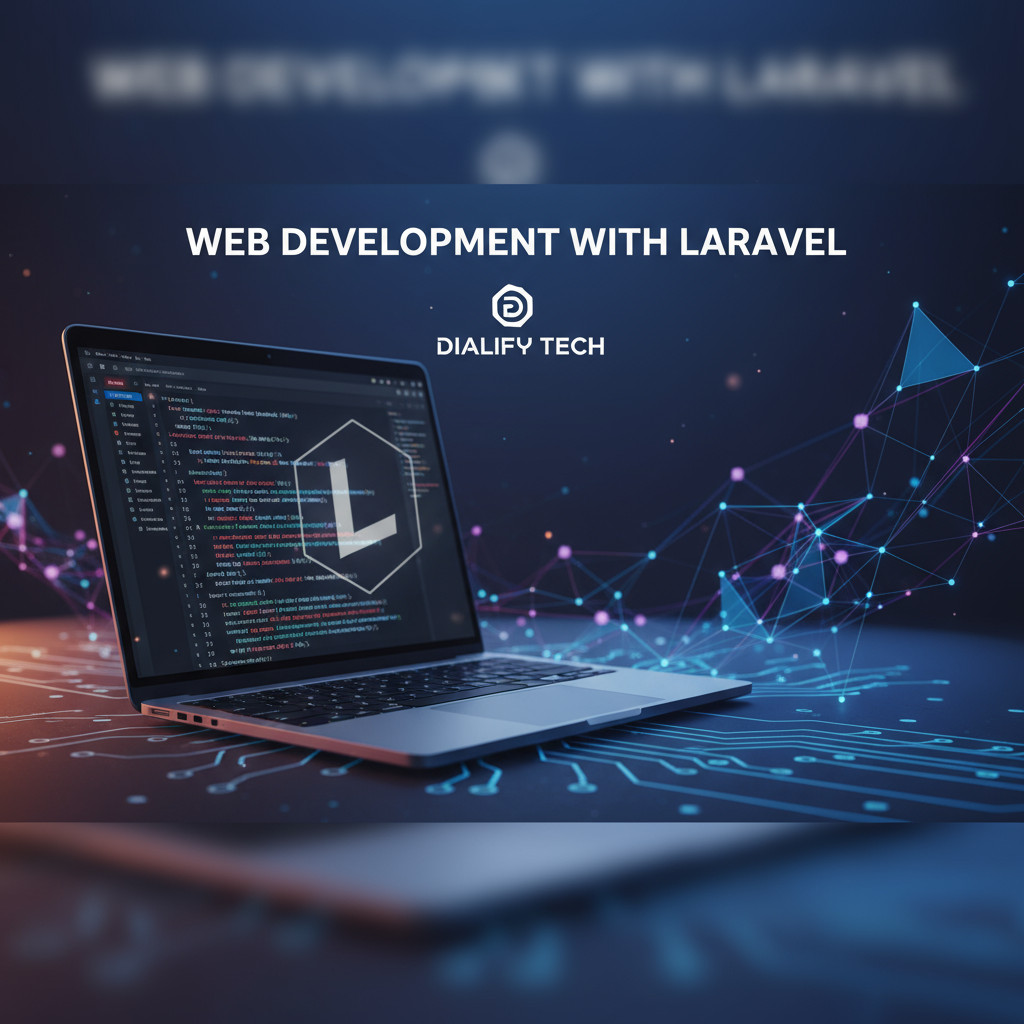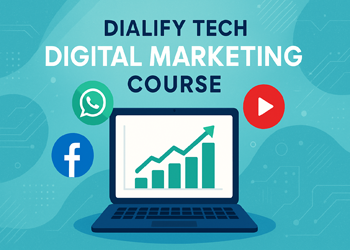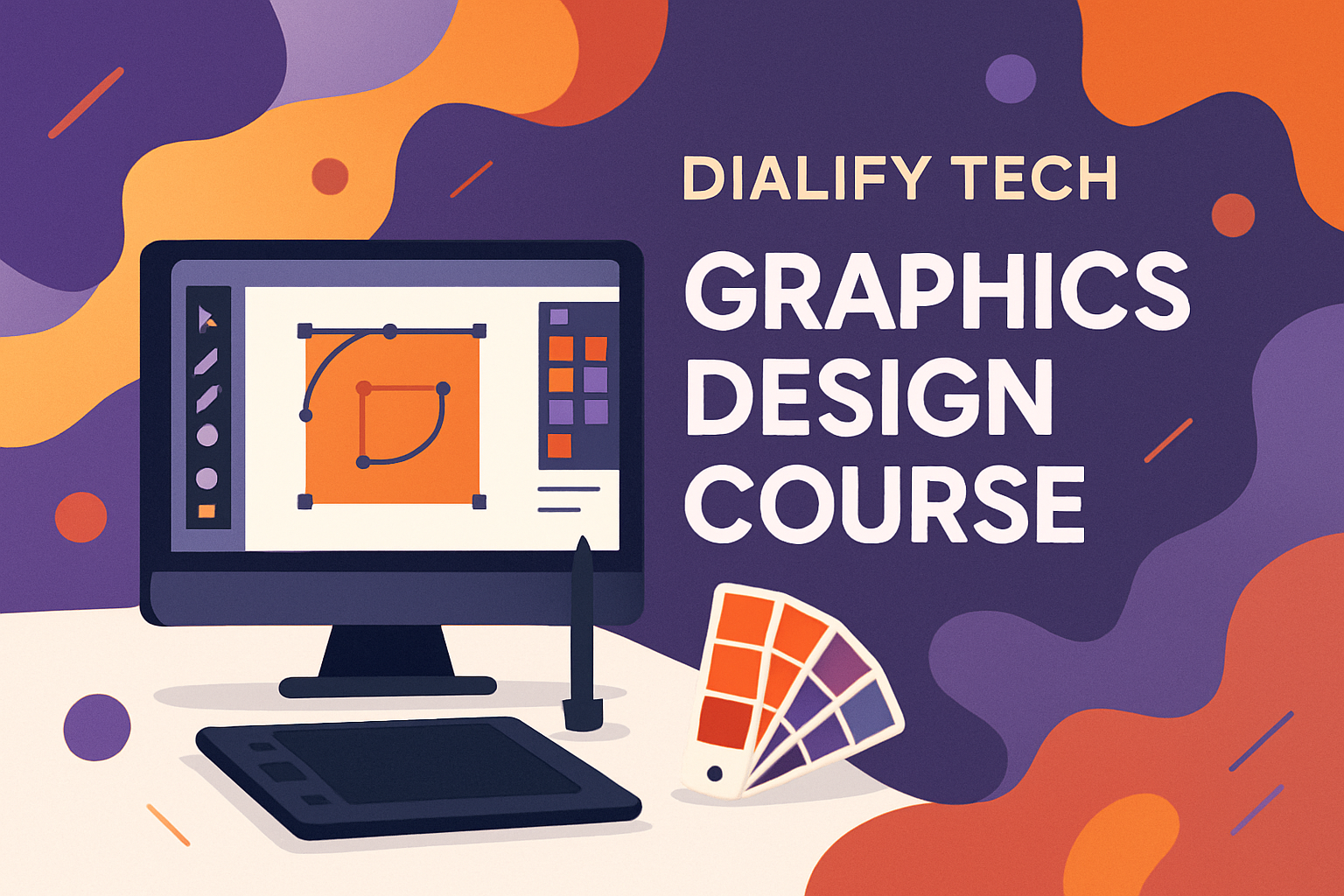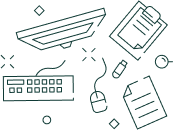
ওয়েব ডেভেলপমেন্ট লারাভেল
Dialify Tech – Web Development with Laravel Course
Location: Mirpur, Dhaka
Course Overview
This comprehensive course equips aspiring developers with the skills to build robust, scalable, and secure web applications using the Laravel framework.
Students will progress from PHP fundamentals to advanced Laravel features, gaining hands-on experience with real-world projects. The curriculum emphasizes best practices, modern development workflows, and deployment strategies, preparing participants for a career in web development.
Target Audience
This course is ideal for:
-
Beginners with basic programming knowledge (PHP or other OOP languages)
-
Junior developers aiming to specialize in Laravel
-
Freelancers & entrepreneurs building web applications
-
Students & professionals expanding their web development portfolio
Prerequisites
-
Basic knowledge of HTML, CSS, and JavaScript
-
Familiarity with programming concepts (variables, loops, OOP basics)
-
Basic CLI (command-line interface) usage
-
Computer with internet access and admin privileges
Course Duration
📌 To be finalized (e.g., 80 hours / 4 weeks)
Learning Objectives
By the end of this course, participants will be able to:
-
Understand Laravel’s MVC architecture & core principles
-
Set up a complete Laravel development environment
-
Build dynamic web apps with Laravel
-
Manage databases with Eloquent ORM & migrations
-
Implement authentication & authorization systems
-
Develop RESTful APIs with Laravel
-
Handle forms, validation & CSRF protection
-
Manage front-end assets with Laravel Mix
-
Deploy Laravel applications to production servers
-
Write clean, maintainable, and testable code
Course Curriculum
Module 1: Introduction to Web Development & PHP Fundamentals (10 hrs)
-
How the web works (HTTP, client-server model)
-
Front-end vs. back-end basics
-
Web servers: Apache, Nginx
-
Databases: MySQL, PostgreSQL
-
PHP refresher: variables, loops, arrays, functions
-
OOP concepts: classes, objects, inheritance, polymorphism
-
Setting up development environment (XAMPP/WAMP/Docker, Composer)
Module 2: Getting Started with Laravel (15 hrs)
-
Introduction to Laravel & ecosystem (Artisan, Blade, Eloquent, Mix)
-
Installation & project setup
-
MVC architecture explained
-
Routing (GET, POST, PUT, DELETE, parameters, model binding)
-
Controllers (standard, resource, single action)
-
Blade templating (layouts, components, loops, conditions)
Module 3: Database Management with Eloquent ORM (20 hrs)
-
Database configuration & migrations
-
Creating, modifying, rolling back tables
-
Seeders & factories for dummy data
-
Defining models & working with data
-
CRUD operations (insert, update, delete)
-
Relationships (1:1, 1:M, M:M) & eager loading
Module 4: Forms, Validation & Authentication (15 hrs)
-
Handling forms & retrieving input
-
CSRF protection
-
Validation rules & custom messages
-
Form request classes
-
Authentication (Breeze/Jetstream, login, register, password reset)
-
Authorization (gates & policies)
Module 5: Advanced Laravel Concepts (10 hrs)
-
Middleware (global, group, route)
-
Service container & service providers
-
Facades & IoC concepts
-
Artisan console & custom commands
-
Queues (dispatch jobs, workers)
-
Events & listeners
Module 6: Front-end Integration & APIs (10 hrs)
-
Laravel Mix: compiling CSS/JS, versioning assets
-
RESTful APIs: routes, resources, controllers
-
API authentication with Sanctum
-
Vue.js/React integration overview (optional)
-
Axios for AJAX requests
Module 7: Testing & Deployment (10 hrs)
-
Unit & feature testing with PHPUnit
-
Database testing
-
Deployment strategies: shared hosting, VPS, cloud (AWS, DigitalOcean)
-
Git & version control
-
Deployment tools: Envoyer, Deployer, CI/CD overview
Project Work
Students will develop a real-world web application using Laravel, applying all learned concepts:
-
Database design & migrations
-
Authentication & authorization
-
RESTful APIs & front-end integration
-
Deployment to a live server
👉 Final project doubles as a portfolio piece.
Assessment
-
Quizzes & assignments after each module
-
Mid-term project review
-
Final project submission & presentation
Certification
✔ Participants will receive a Dialify Tech Web Development with Laravel Certification upon completion of the course & project.








